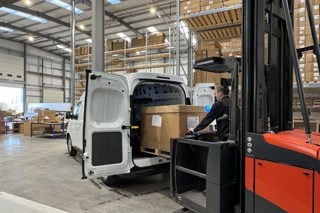Local leaders should be given more powers to introduce new taxes or charges for motorists, such as a workplace parking levy, to cut congestion.
That’s according to a new report, published by the National Infrastructure Commission (NIC), which says that £22 billion is needed to upgrade transport networks in major cities across the country by 2040, and two thirds of that money should be handed to Leeds, Manchester, Birmingham and Bristol.
It said investments in tram and rail networks would benefit these cities, but local leaders should decide how that funding is spent and be given the power to raise more money locally, by imposing new taxes or introducing charges for motorists.
It cites London’s congestion charge or Nottingham’s workplace parking levy – a charge imposed on employers who provide workplace parking – as schemes that could be rolled out in those cities to reduce car usage, cut congestion and raise up to £50 million a year.
Leeds opted not to introduce a clean air zone (CAZ) in 2020, while Manchester has delayed the introduction of its CAZ. Both Birmingham and Bristol have charging schemes already in place.
Logistics UK’s chief executive David Wells said that he was disappointed at the lack of consideration given to the needs of logistics businesses.
“If our industry is to continue to deliver for the UK’s economy, we need confirmation of how this is to happen and fast," he continued.
"Our members are the backbone of all activity for both businesses and consumers and need concrete plans now which they can implement in order to progress.
“As an industry, we are committed to decarbonising, but the infrastructure to support this change still does not exist. 2050 is still some way off, but our city centres cannot be revitalised without the delivery networks that our members provide to make them work.”
The Second National Infrastructure Assessment is a five yearly review conducted by the NIC. It sets out a programme for the country’s energy, transport and other key networks over the next 30 years.
Other recommendations include, better maintenance of existing roads and targeted enhancements to speed up journeys on underperforming parts of the national road network.
Writing in the report’s foreword, Sir John Armitt, chair of the NIC, said: “The good news is that modern, reliable infrastructure can support economic growth, help tackle climate change and enhance the natural environment.
“We stand at a pivotal moment in time, with the opportunity to make a major difference to this country’s future. But we need to get on with it.
“People often talk about infrastructure as the backbone of our economy: what our infrastructure needs now is the collective mettle to turn commitments into action that will reap rewards for decades to come.”
Logistics UK says that the NIC’s call for a long-term infrastructure strategy free from political considerations, was a positive step to address productivity and capacity issues.
Wells added: “If the plan is to facilitate genuine change and revitalise the UK’s economy, it is vital that spending on infrastructure is considered as a down payment on future growth, not an easy target for cuts, by this and future Governments.”
Government is expected to respond formally to the assessment within 12 months.
























Ji - 19/10/2023 13:07
And people wonder why town and city centres are dying!!!!!! it will soon come to the point where suppliers and people will simply refuse to go into towns/cities. Motorists and transport more than pay enough tax, road/fuel etc, start taxing cyclists , get them to pay a bit.